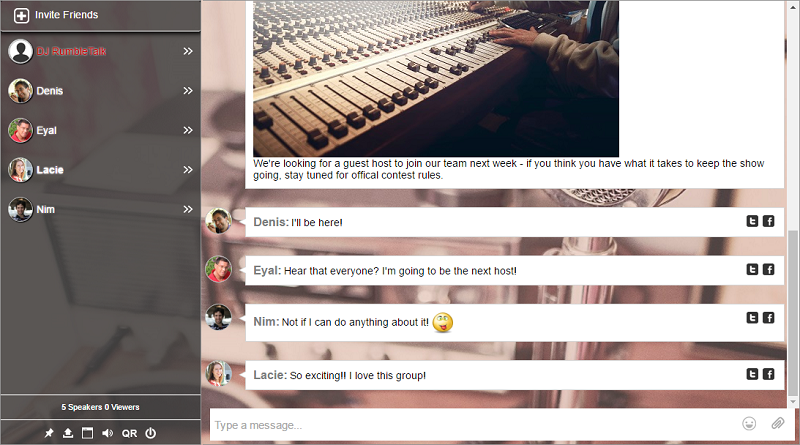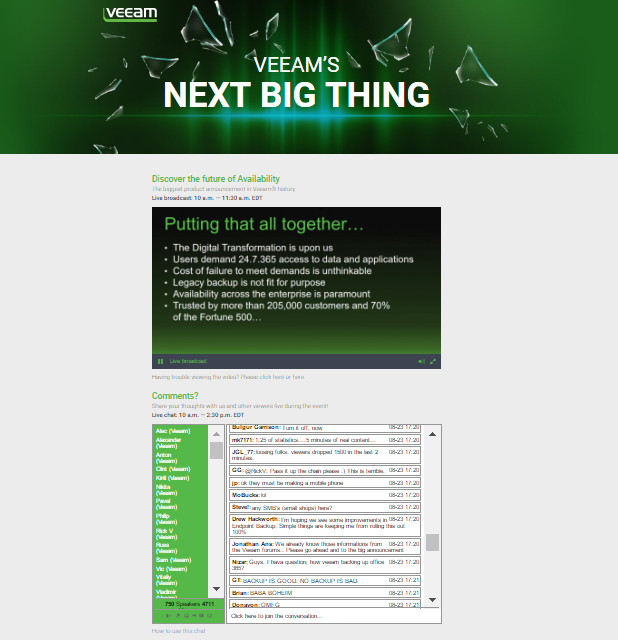For better or worse, I have no need to own a radio. Between my smartphone, laptop and desktop I have no reason to spend my precious money on a device with such little versatility as a radio. If I want to listen to radio, I pull it up on one of my sophisticated electronic devices by visiting the station’s website.
Actually for the better. The Internet makes radio much more competitive and for this reason, better. Listeners are no longer limited to the radio waves in their area, and radio stations can potentially reach listeners around the world. Having more options has brought deserved capitalistic success to stations that create great radio, and forced those who are mediocre to up their game.
And in addition to the market advantages, having radio online gives DJ’s and hosts more opportunities and tools to engage with their listeners. When a listener opens a radio station’s website, they can browse the static information that is relevant to them, such as the schedule or host profile, at a time when they are ready to see it or can participate in live interactions with the show.
RumbleTalk has seen its radio clients benefit from the live interaction that occurs with group chat. Including a live group chat allows listeners and hosts to engage with each other in a public and immersive way. Read on to find out how live group chat improves online radio stations.
Turning Passive Listeners into Active Listeners
It is common to use radio as background noise; but just because a listener tuned into your station with that intent doesn’t mean you can’t convert them into an active user. Knowing and increasing how many listeners are actually active can increase the value of your advertising space whether that is in the form of an audio commercial or display ad. Even generally, it’s better for your station to be heard than to fall on deaf ears.
By including a live group chat in your website, your hosts will have many angles to direct users to your website. This pulls them from distractions like Facebook to your content and increases the value of your “digital real estate”.
For example, the host can upload and embed a video, audio, or video in the live group chat for listeners to comment on, or encourage listeners to send their questions, comments or song requests for live responses. If your station hosts a talk show, the live group chat is a great way to have listeners share their opinions on controversial issues. Stations can also use the live group chat to play trivia or other games.
Watching the Spectacle of Live Radio
There will be typically be people who just want to view the live discussion without participating. Forum style interactions give the sense that the user can return to it any time, but live group chat discussions create a sense of urgency to keep users engaged.

The content of your live group chat from those who do actively participate in the discussion provides a value-add to the station as a whole. Those who are participating in the chat are generating free content for your other listeners to consume. And expert, interesting, or simply vocal users of the chat can be a driving force for returning listeners who are fascinated with watching the spectacle of a raw discussion.
Some producers will fear the potential for controversy, but controversy should not be overtly avoided. Controversy is a common factor in viral content and viral content is good for business.
However, most radio stations want to have the option to use effective moderation tools. Moderating with RumbleTalk is easy and can be done in steps. You can appoint as many moderators as you would like, create a list of words to be automatically filtered, view the IP addresses of chatters, kick out a chatter, and permanently ban a chatter.
High ROI
Live group chat is an investment with a high return. The reason for this is that listeners who feel emotionally connected to a station return and an emotional connection can easily be made from a human-to-human interaction.
The feeling of sitting in the room with their favorite radio host can be imitated when both the host and the listener are present in the same live group chat room. Alternatives to live group chat lack this human feeling of instantaneous interactions.
In addition to the host-listener relationship, listener-listener relationships are also created. This builds a community of people who feel connected to one another for their mutual interest in the station. That community bond is another driver for returning listeners.
Live group chat increases returning listeners and keep listeners glued to the station website for longer amounts of time. As discussed earlier this makes the value of your digital real estate increase, but what does it cost in the first place?
For a top-of-the-line professional live group chat room, stations can pay as little as $14 per month. This includes the ability to export chat transcripts and monitor how many listeners are logged into your chat. These can be used as resources to prove the extent of your station’s active users.
Choosing a Group Chat for Your Radio Station
While there are many live group chat options available, you’ll want to make sure you are choosing one that has is able to perform at a minimum the following functions:
The last point on that list is crucial to the professional appearance of your station. You don’t want to have to send your customers to a third party site or app in order to get them to participate. Think of it as having your listeners call your station rather than an outside call center. It makes a difference.
And since you will be including this chat on your website, you’ll also want it to be customized to aesthetically fit your website. Using RumbleTalk’s live group chat room has options for those that are novice web designers as well as CSS experts.
Of course, we’re biased because our team works endlessly to make sure that our group chat rooms have all the necessary tools and options to deserve a place in the twenty-first century.
Visit RumbleTalk’s website to get more information on product features, try a demo, and get started with a 7-day free trial.




